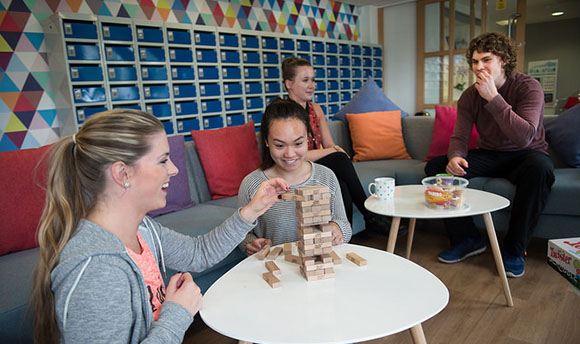Making osteoporosis a public health priority
Today (20th Oct ‘22), we mark World Osteoporosis Day by sharing news of an innovative research project at Queen Margaret University which aims to radically improve knowledge and understanding of osteoporosis amongst healthcare professionals.
Osteoporosis is a common bone disease that weakens bones, making them fragile and more likely to break. It develops slowly over several years and is often only diagnosed when a fall or sudden impact causes a bone to break (fracture). It affects over 3 million people in the UK (including 250,000 in Scotland) and accounts for around 527,000 fractures per year in the UK.
The most common injuries in people with osteoporosis are a broken wrist, hip or spinal bones (vertebrae). However, breaks can also happen in other bones, such as in the arm or pelvis. Sometimes a cough or sneeze can cause a broken rib or the partial collapse of one of the bones of the spine. Although a broken bone is often the first sign of osteoporosis, some older people develop the characteristic stooped (bent forward) posture. It happens when the bones in the spine have broken, making it difficult to support the weight of the body.
Osteoporosis rates increase with age and in the context of a rapidly ageing population in the UK and elsewhere, the overall numbers will continue to rise. Indeed, medical specialists refer to an impending ‘osteoporosis epidemic’ as around 50% of people aged 75 and over have osteoporosis. Globally osteoporosis is a large public health issue. Although it is commonly viewed as a disease mainly affecting postmenopausal females, it can strike many others in the population. For example, recent robust evidence shows it affects older males in significant numbers giving rise to an increased risk of hip fracture and often poor health outcomes especially in males over 75 years. As this disease is often ‘silent’ in its presentation until fractures occur, it is frequently under diagnosed in the general population and as a result, people may not gain access to treatment until it is well-advanced.
Indeed, many people with osteoporosis will not show any obvious physical signs that they have the condition. These issues can cause challenges for healthcare staff who may be responsible for moving and handling a patient/resident, as even the slightest touch can be enough to cause a fracture. It is therefore crucial that healthcare professionals have a good understanding of osteoporosis in order to avoid causing fractures to individuals in their care. As the former director of the Lydia Osteoporosis Project, Dr Margaret Smith, once said:
We need to 'think about osteoporosis' in all moving and handling activities and always treat as if the condition is present - just as we would if we always had eggs in our shopping basket.
The Lydia Plus Osteoporosis Project (LOP) started at Queen Margaret University in 2011. The original project aim was to increase awareness of osteoporosis amongst healthcare staff and to investigate the implication of osteoporosis for moving and handling practice and promoting person-centred safe and effective practice. The research and collaboration project has now developed further, and we are in process of disseminating the findings from the research work. With its ever-increasing prevalence in society, we aim to elevate the profile of osteoporosis and change the way the disease is viewed by health professionals – ultimately, we want osteoporosis recognised as a public health priority!
Research which is person-centred is key to driving forward progress in osteoporosis education. Queen Margaret University is a world-leading centre for research and development in person-centre practice (Centre for Person-centred Practice Research) and the University facilitates and supports the work of the Lydia Plus Osteoporosis Project team in growing the knowledge of osteoporosis in health and social care.
Queen Margaret University has a proud history of focusing on work which transforms lives. Through the Lydia Plus Osteoporosis Project we aspire to help create a new generation of researchers capable of producing person-centred research outputs that will make a real difference to people living with this condition.
As with all of the University’s person-centred healthcare work, individuals are at the heart of our learning and research strategy. With this in mind, we are focused on work that is personalised, coordinated and enables individuals’ affirmation and wellbeing.
As individuals, each person who has osteoporosis will have their own unique experience of how it impacts their lives. So, when we consider how we care and support people with osteoporosis, it is crucial that we consider what matters to each individual, as well as acknowledging that everyone will do things in their own way. Through our work with the Lydia Plus Osteoporosis Project we always stress the importance of welfare, dignity, compassion, and respect in all encounters, as well as viewing each person as an active participant in health and social care, whether they are receiving or delivering care.
However, ‘care’ is complex and requires an interdisciplinary approach from different professions. For this reason, Lydia Plus Osteoporosis Project is launching several initiatives and is establishing collaborative partnerships to consider osteoporosis from a person-centred perspective.
On World Osteoporosis Day 2022 we invite you to find out more about the work of the Lydia Plus Osteoporosis Project and our new person-centred initiatives, at www.lydiaosteoporosis.org
Follow us on Twitter @project_lydia
Laura Fregonese is Assistant Lecturer with the Lydia Plus Osteoporosis Project (LOP) & Lecturer in the Division of Nursing and Paramedic Science at Queen Margaret University, Edinburgh.







